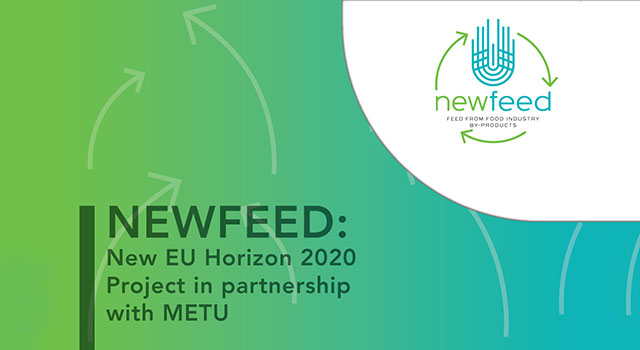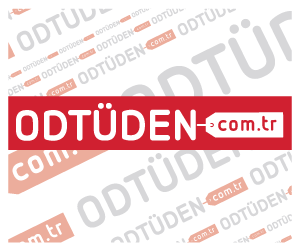
Prof. Ülkü Yetiş and Prof. Filiz Dilek, faculty members of the Department of Environmental Engineering at METU, have become partners of NEWFEED, an innovation project for the exploitation of the food industry by-products.
NEWFEED, a project on “turning food industry by-products into secondary feedstuffs via circular-economy schemes,” commenced on July 1, 2021, with 14 partners from four countries, namely Greece, Spain, and Egypt, as well as Turkey. One of the partners of the project, which is a part of the PRIMA program supported and funded under EU Horizon 2020 Framework, is the Middle East Technical University.
The objective of the project, which will last for a total of 48 months, is the development and adoption of alternative animal feeds by turning the by-products of the food industry into high value secondary feedstuff for animal feed with a circular economy approach in the livestock production. Moreover, the project also focuses on the increase of the sustainability of the Mediterranean livestock through the valorization of local food industry by-products that will result in reduced environmental impact and costs.
This innovation action aims to directly test and demonstrate the technical and economical viability of alternative feed resources from improved food industry by-products in the Mediterranean Area. With this project, grape stems from wineries in Spain will be valorized as a second-generation feedstuff to produce a new feed ingredient for dairy sheep and cattle, orange peels from orange juice industries in Greece will be valorized as an improved feeding ingredient for dairy sheep, and the olive cake from the olive oil industry in Egypt will be used to produce feed ingredient for poultry. In addition, with the joint efforts of Turkey and Greece, the environmental, economic, and social impacts of these three different value chains will be evaluated through life cycle analysis.
 While contributing to the achievement of the UN Sustainable Development Goals, NEWFEED will help to develop a sustainable and efficient agriculture, livestock, and food system. Furthermore, through NEWFEED, all involved partners will have the opportunity to increase public and consumer awareness on significant topics such as sustainability, circular economy, resource efficiency, climate neutrality, food system interconnection, local innovation, economic growth, and employment in both rural areas and in the field of renewable biological resources.
While contributing to the achievement of the UN Sustainable Development Goals, NEWFEED will help to develop a sustainable and efficient agriculture, livestock, and food system. Furthermore, through NEWFEED, all involved partners will have the opportunity to increase public and consumer awareness on significant topics such as sustainability, circular economy, resource efficiency, climate neutrality, food system interconnection, local innovation, economic growth, and employment in both rural areas and in the field of renewable biological resources.







